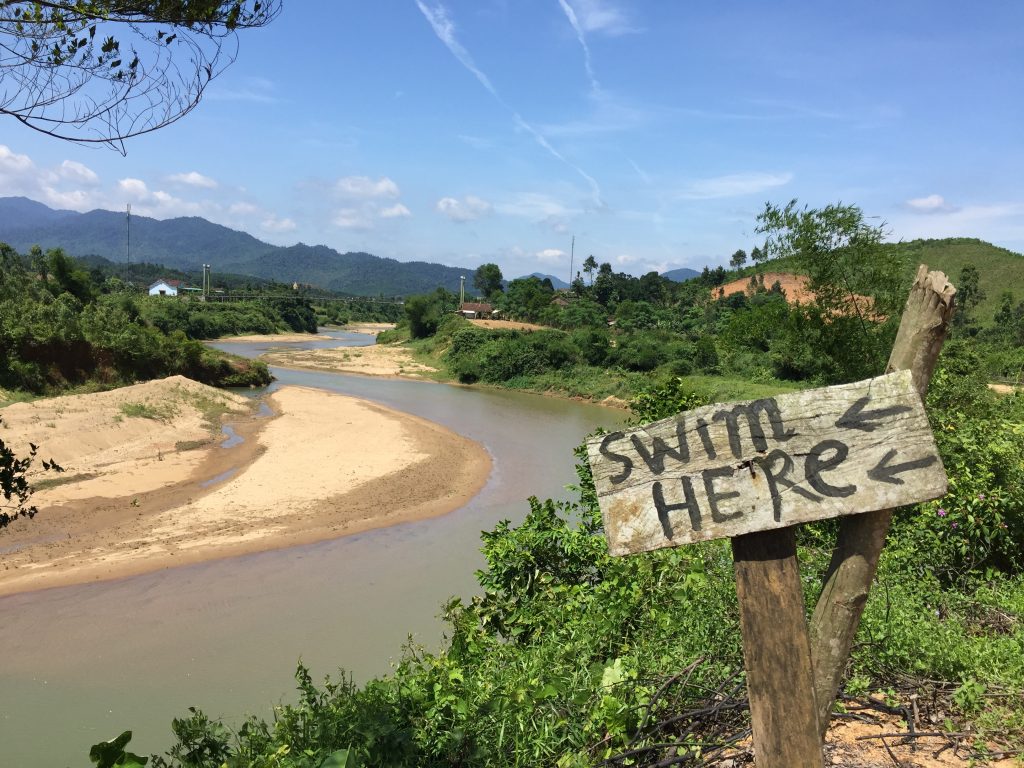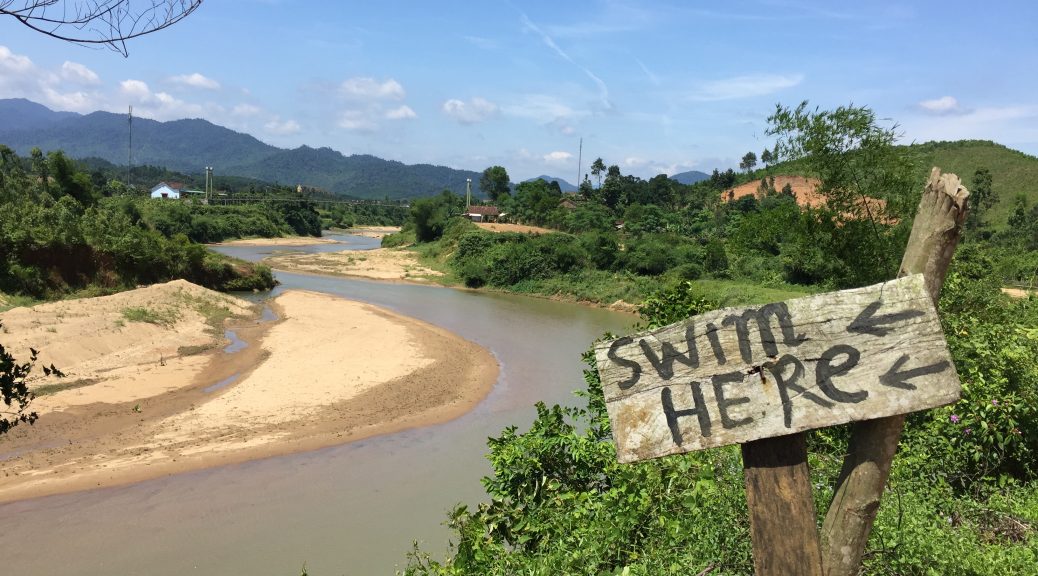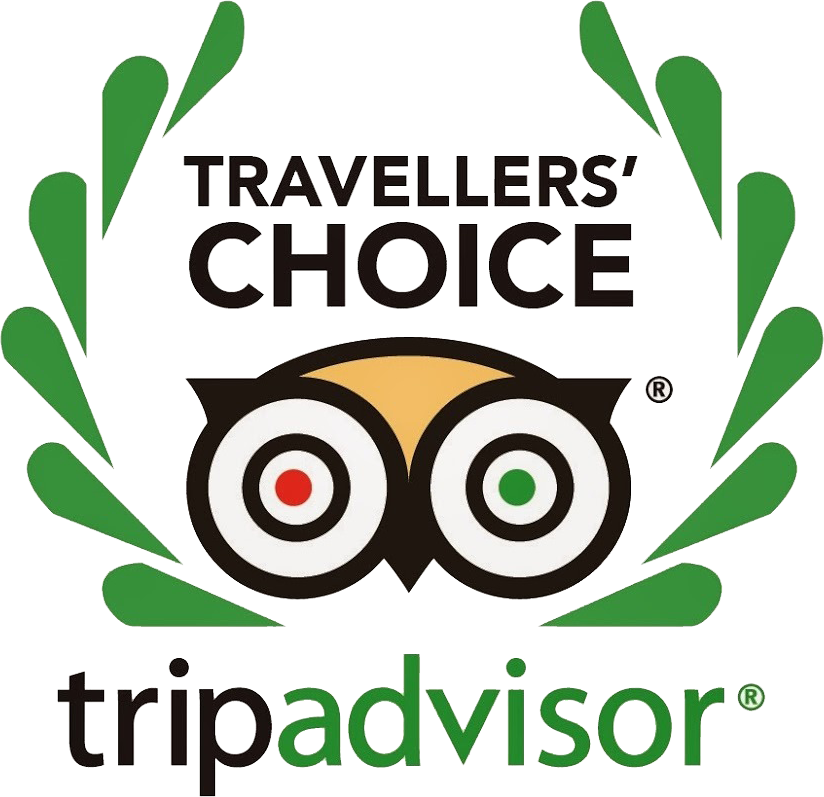Phong Nha is more than just caves. Tourists come to visit countryside, mountains, jungle and a chill-out place called the Bong Lai Valley. Cycling or takes motorbike along mud paths and across rivers to get a taste of this rural idyll

The Bong Lai Valley is defiantly isolated and yet integral to Phong Nha’s tourist trail. The area is poor, but as tourism develops a number of local entrepreneurs are bringing new wealth to its hard-working people. There are now a number of attractions in the Valley making it a great relaxing day or half day out in the countryside.
Three Hundred Ducks
“The crop decides if you will have a rich farm or a poor farm,” says Quynh, owner of The Duck Stop. “Our main crop is pepper and if we have a bad year the trees only produce a little, so we sell other things, too — cows, buffalo, ducks and some fruit and vegetables.”
Pub with Cold Beer
The “Pub with Cold Beer” is the original watering spot in the valley for thirsty tourists. The beer is, as advertised, cold, and everything you eat there is grown in the village. Chicken is the specialty of this farm to table experience, with chicken so fresh that when you arrive it will still be scratching around the veggie patch! While you wait for your lunch to cook you can rent a tube off them and float down the river, just lie in a hammock with a cold beer or you can get as involved as you like with the preparation of your chicken. The “Pub with Cold Beer” has been praised by the Huffington Post and the New York Times travel sections.
Wild Boar Eco Farm
Along the River At the other end of the valley lies the Wild Boar Eco Farm. “We own about 2km of land along the river,” says owner, Cuong. “We grow rubber and acacia trees to sell, and other, cheaper crops to serve to our guests.” He also brews rice wine and sells rice from his fields nearby.
The farm has a small menu using ingredients grown onsite, from hot toasted peanuts and freshly cut sweet potato fries, to rice with vegetables and wild boar meat. The boars are caught in the jungle nearby and raised in a wide, brick-lined pen next to the house. “We have to feed one boar for 10 months to a year before it is big enough to eat,” says Cuong. “You can’t sell them for much, but people love to come here to try the meat.”
Visitors can also sleep at the Eco Farm, but because the road there is so bad, Cuong is struggling to get the business on its feet. He has two clean, wooden rooms set up for visitors and a massive bathroom.




